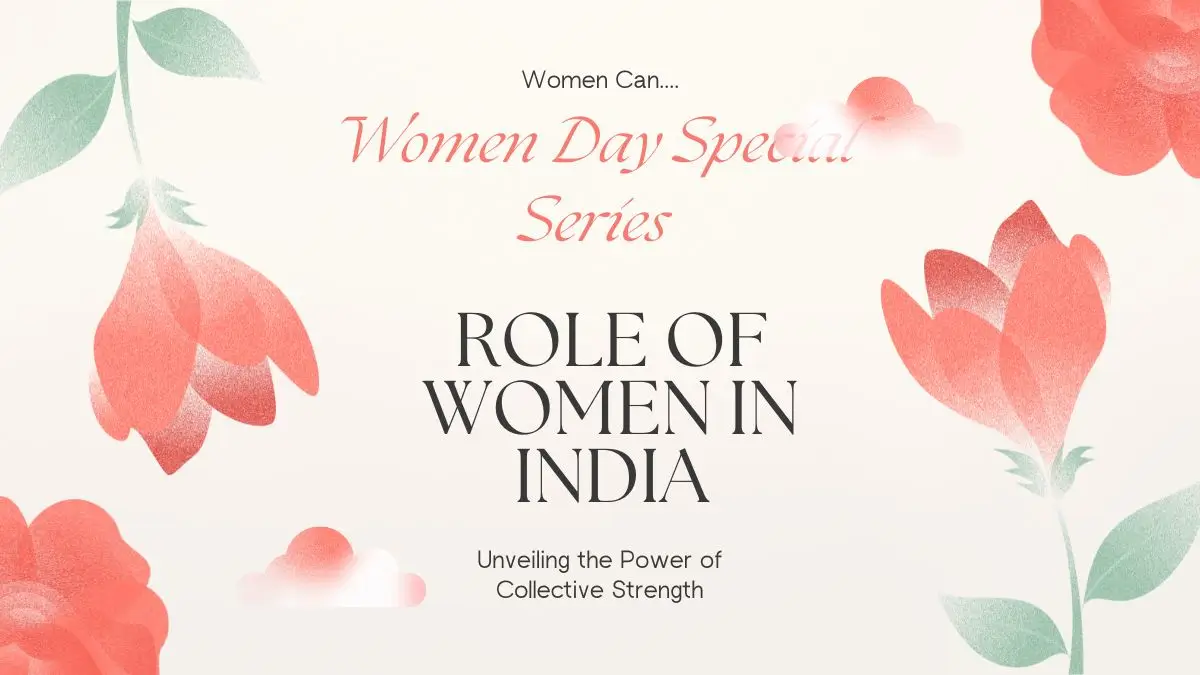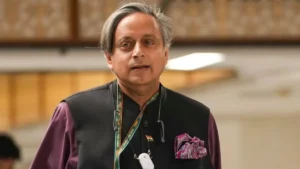The role of women in India has evolved significantly over time, shaping and being shaped by social, political, economic, and environmental factors. While historically women held high positions in society, later periods saw restrictions on their rights and freedoms. However, with social reform movements, independence struggles, and modern policies, women have regained their active role in various spheres of life. Today, women contribute significantly to India’s development, playing crucial roles in society, politics, economy, and environmental conservation.
Evolution of the Role and Status of Women in India
- Indus Valley Civilization & Vedic Period: Women enjoyed equal status, participated in politics (Sabha & Samitis), and contributed to literature and philosophy.
- Later Vedic Period & Gupta Era: Decline in women’s status, emergence of social restrictions, and introduction of practices like Sati.
- Medieval India: Patriarchal norms strengthened, purdah system and Sati became common, and women had limited access to education and political power.
- British Colonial Rule & Social Reform Movements: Efforts by reformers led to the abolition of Sati (1829), Widow Remarriage Act (1856), and increased focus on women’s education.
- Independence & Post-Independence Era: Women actively participated in India’s freedom struggle and post-independence policies focused on gender equality and empowerment.
Role of Women in Indian Society
Family
- Women serve as caregivers, administrators, and economic contributors within families.
- Their role as mothers significantly impacts the upbringing of future generations.
Education
- Women play a crucial role in educating children and fostering societal development.
- Studies show that a mother’s education level directly affects child development.
Healthcare
- Women contribute 70-80% of all healthcare provided in India.
- Female healthcare workers improve maternal and child health outcomes.
Food Security
- Women are essential contributors to food production, distribution, and household nutrition.
- They ensure food security through farming, entrepreneurship, and managing household food resources.
Role of Women in Indian Politics
- Increasing Voter Turnout: Female voter turnout has risen from 46.6% (1962) to 66.9% (2019).
- Representation in Government: Women’s representation in Lok Sabha increased from 5% (1951) to 14% (2019).
- At the grassroots level, 50% of elected representatives in Panchayati Raj institutions are women.
- Policy Impact: Increased female representation leads to policies focusing on social welfare, health, and education.
Role of Women in India’s Economic Growth
Workforce Participation
- Women contribute 18% to India’s GDP.
- They make up 48% of the agricultural workforce but own only 13% of the land.
- 30% of India’s workforce in the service sector comprises women.
Entrepreneurship
- India has the world’s 3rd largest startup ecosystem, with 10% of startups led by women.
- Women-led businesses are more sustainable and community-driven.
Corporate Leadership
- The share of women in CEO/MD roles in Indian companies has increased by 55% in recent years.
Role of Women in Environmental Conservation & Sustainable Development
- Rural and Indigenous Communities: Women play a crucial role as farmers, livestock managers, and water resource conservators.
- Environmental Movements: Women have led significant movements like the Bishnoi Movement, Chipko Movement, Appiko Movement, and Narmada Bachao Andolan.
- Government Policies: Joint Forest Management (JFM) mandates 33% female participation in forest management committees.
- Mainstreaming Sustainability: Women’s participation in planning and monitoring environmental policies is increasing.
Measures to Enhance the Role of Women
- Improving Access to Education: Expanding quality education for girls and skill development programs.
- Providing Support Services: Affordable childcare, healthcare, and transportation to help women balance work and family life.
- Encouraging Leadership Participation: Promoting women’s leadership in politics, business, and governance through mentorship programs.
- Addressing Discrimination and Bias: Strengthening laws against workplace discrimination and promoting equal opportunities.
- Community Participation: Creating platforms for dialogue, networking, and capacity-building to enable women to take leadership roles.



 Which Lake is known as the Jewel of Udai...
Which Lake is known as the Jewel of Udai...
 Which is the Largest Banana Producing St...
Which is the Largest Banana Producing St...
 Shashi Tharoor Conferred Honorary D.Litt...
Shashi Tharoor Conferred Honorary D.Litt...








